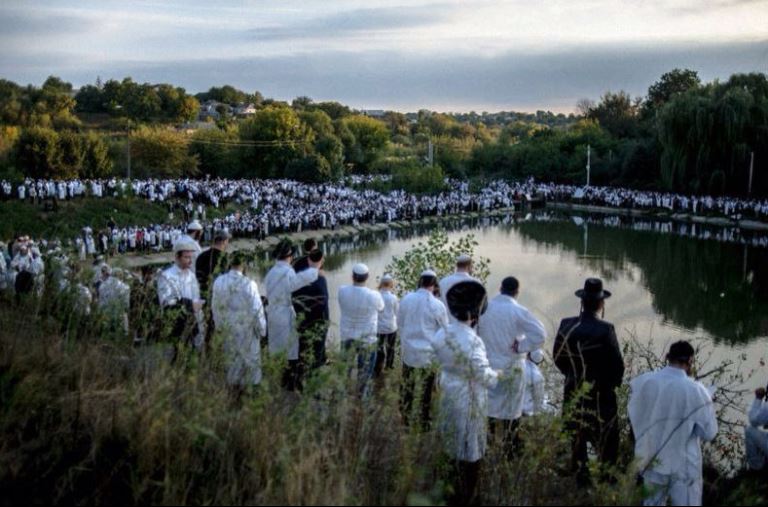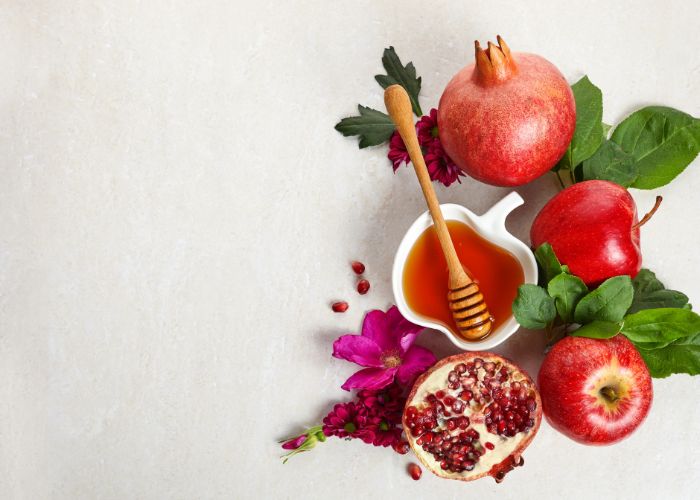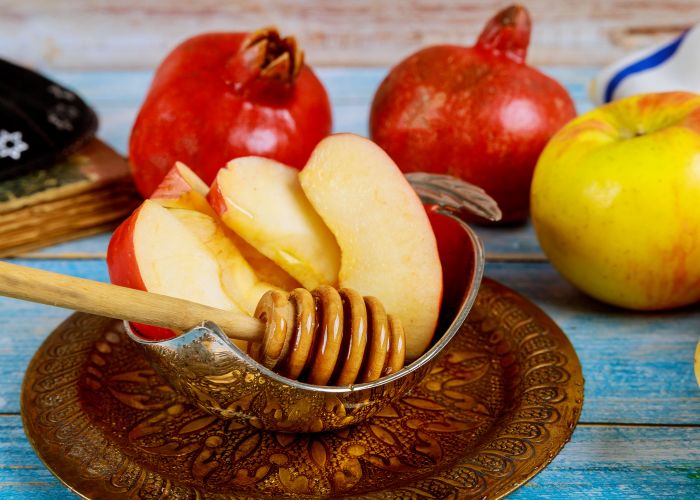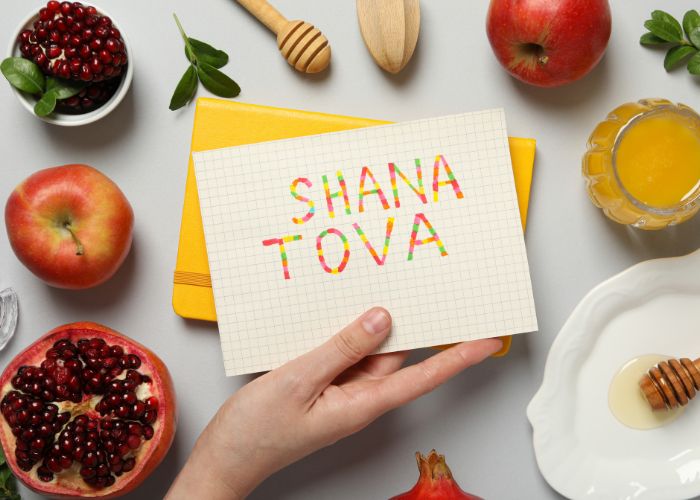Rosh Hashanah is the Jewish New Year. The term “Rosh Hashanah” literally means “head of the year” in Hebrew, marking the start of the Jewish civil year. It marks the beginning of the Jewish calendar year and is a time of reflection, prayer, and renewal. It is observed on the first and second days of Tishrei (Alef Betishrei א בתשרי) and ushers in the Ten Days of Repentance, which culminate in Yom Kippur.
Rosh Hashanah is considered the Day of Judgment, but also as time of celebration. On this day, God is said to judge all of humanity and inscribe each person’s fate for the coming year in the Book of Life or Death. Jewish customs for Rosh Hashanah include the blowing of the shofar (a ram’s horn), eating symbolic foods like apples dipped in honey (to signify a sweet new year), and reciting special prayers.
Rosh Hashanah 2025 Dates
Rosh Hashanah 2025 will begin at sunset on Friday, September 22, and end at nightfall on Sunday, September 24. Because the Jewish calendar follows the lunar cycle, the holiday’s exact dates shift each year.
The History of Rosh Hashanah
Rosh Hashanah’s origins can be traced back to biblical times, with its first mention in the Torah as a day of “remembrance” and “shofar blowing.” Although it is often referred to as the Jewish New Year, it was initially connected with the agricultural cycle and later came to symbolize the beginning of the year in the spiritual sense. Over time, it evolved into a celebration of self-examination and repentance, a period leading up to Yom Kippur, the Day of Atonement.

Rosh Hashanah Traditions Explained
One of the most important rituals is the blowing of the shofar, a ram’s horn that is sounded throughout the holiday. This act serves as a wake-up call for self-reflection and spiritual awakening. As a Jew you don’t have to blow the shofar yourself but it is a mitzva to hear it. Another key custom is the recitation of special prayers, such as the Tashlich, where people symbolically cast away their sins by throwing breadcrumbs into flowing water.

Rosh Hashanah Dishes
Food plays a central role in Rosh Hashanah (as in any Jewish holiday let’s be honest) celebrations, with each dish carrying symbolic meaning. The most well-known tradition involves eating apples dipped in honey (Tapuch Bedvash), representing the hope for a sweet new year. Pomegranates, with their many seeds, symbolize abundance, One of the reasons for its significance is the belief that a pomegranate contains 613 seeds, corresponding to the 613 mitzvot (commandments) in the Torah. Hence the blessing: “שנהיה מלאים מצוות כרימון”. A round Challah is also common to have at the table. Other common dishes include fish heads, representing the head of the year, and געפילטע פיש (Gefilte fish) which is a traditional Jewish dish, particularly popular in Ashkenazi cuisine. The term “gefilte” comes from Yiddish, meaning “stuffed.” Typically served as poached fish patties or balls made from a mixture of ground fish, usually carp, whitefish, or pike.



How Rosh Hashanah is Celebrated Today
Families gather for festive meals, where they share symbolic dishes and reflect on the past year. Synagogue services play a central role, featuring the recitation of special prayers and the blowing of the shofar. Although the customs vary slightly across Jewish communities worldwide, the underlying theme is reflection, repentance, and prayers for blessed year to come.
Rosh Hashanah and Aseret Yemi Thsuva
At its core, Rosh Hashanah is a time for personal reflection . It begins the Ten Days of Repentance (Aseret Yemi Thsuva), leading up to Yom Kippur, the Day of Atonement. These days, also known as the Days of Awe, are a period of intense self-examination and repentance, where individuals seek to correct their wrongs from the past year and set their intentions for a more righteous and fulfilling year ahead.
Rosh Hashanah Greetings and Wishes
One of the most common ways to greet someone during Rosh Hashanah is with the phrase “Shana Tova,” שנה טובה which means “Good Year” in Hebrew. Another common greeting is “L’Shanah Tovah Tikatevu,” meaning “May you be inscribed for a good year,” referring to the belief that God inscribes the fate of each person in the Book of Life during this time. Finally you can also say: תִּכְלֶה שָׁנָה וְקִלְלוֹתֶיהָ תָּחֵל שָׁנָה וּבִרְכוֹתֶיהָ (if you can make it) :”Let the year and its curses end; let the new year and its blessings begin.” “Tikhleh shanah u’klaloteha, takhel shanah u’birchoteha.”


